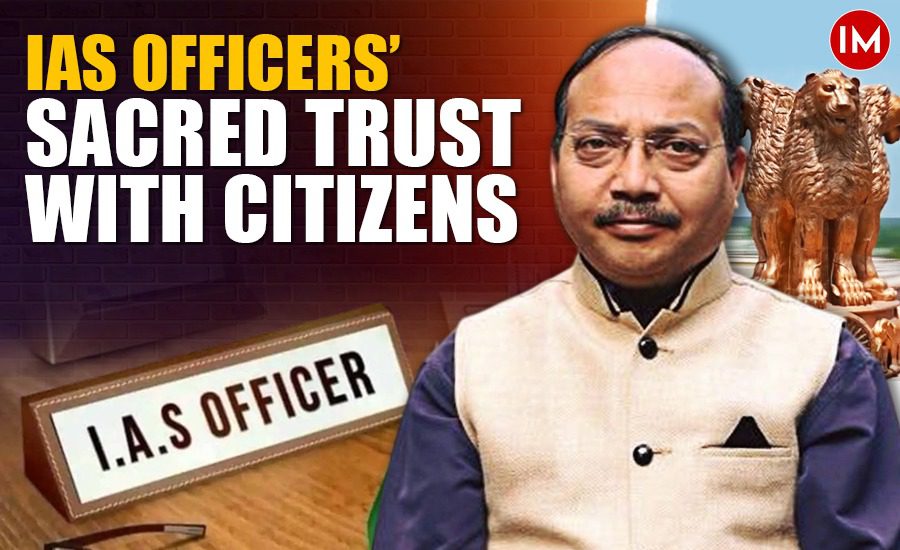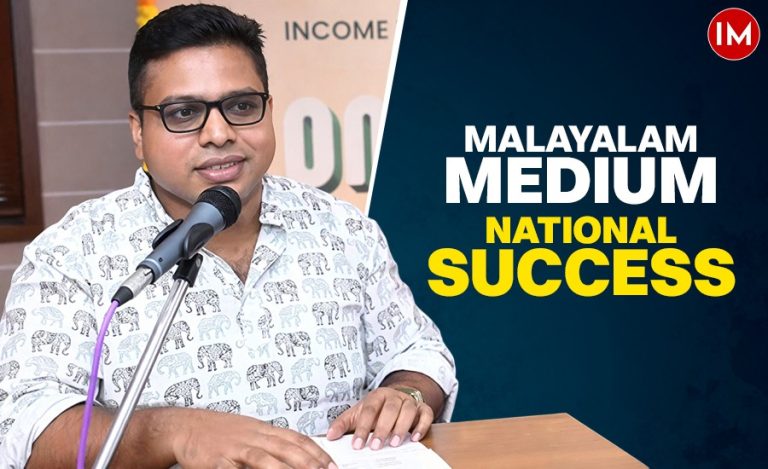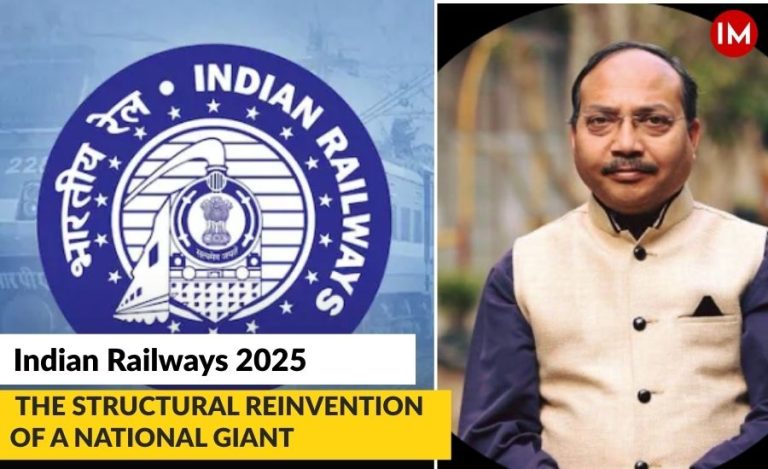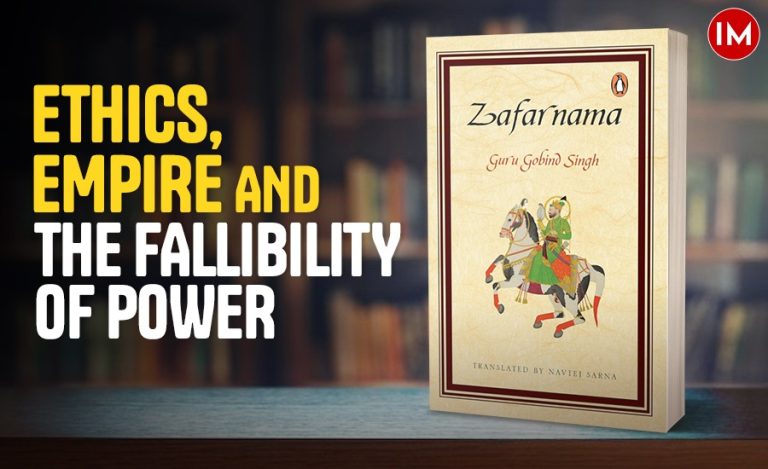In April 2025, Neelabh Saxena, the District Magistrate (DM) of Karauli, Rajasthan, faced severe reprimand from Chief Secretary Sudhansh Pant for vacationing in Kashmir while his district grappled with a scorching heatwave, power outages, and water shortages. Saxena had sought leave for “urgent personal reasons” in Lucknow but was discovered in Kashmir as he was wearing woollens during a virtual review meeting. Pant lambasted his “irresponsible behavior,” emphasizing that Saxena’s absence during a crisis reflected his “administrative insensitivity”. The incident underscores how personal lapses can erode public trust, especially when officers prioritize comfort over duty.
IAS officer Priyansha Garg of West Bengal cadre on the other hand, penned a thoughtful reflection on welfare and farewell in public service. Your job demands continuous welfare of people and the reward is the love you receive at the time of your farewell from a post. Her statement emanated from her barely two-years long experience in the field but is also a reflection of her sensitiveness and commitment to the serve the people.
Garg reminds me of the 1981-batch IAS officer, Anil Swarup who just before retiring from service told me that he was going to be busier than when he was serving the government. Howsoever pompous he might have sounded then, he really is busier now. Social media posts announcing his participating in some or the other programme every day, reminds me of the statement he made then.
He also said – retirement is like afterlife. Your karma decides whether you would go to heaven or to hell. Similarly, an officer’s work during his career, decides the treatment he will get after retirement. Mr. Swarup made that comment in response to a colleague’s lament that people had stopped calling on him post-retirement. “If you serve the people, they will salute you even after retirement. But, if you serve only yourself during job, you will be feeling lonely after superannuation”, he said.
THE SOCIAL CONTRACT
The IAS represents India’s steel frame of governance, comprising officers entrusted with immense power and responsibility. When an officer chooses comfort over duty during a crisis, it fractures the sacred trust between administrators and citizens. The reprimand of DM Saxena highlights a fundamental expectation: IAS officers must prioritize public welfare above personal comfort, especially during challenging times.
Former Cabinet Secretary T.S.R. Subramanian once remarked, “An IAS officer’s primary allegiance is to the constitution and the people it serves, not to political masters or personal convenience.” This sentiment encapsulates the core principle that should guide every administrative decision and action.
LEADING FROM THE FRONT
The annals of Indian administration are filled with inspiring stories of officers who embodied this principle of service above self. Armstrong Pame, known as the “Miracle Man” of Manipur raised funds online and mobilized local communities to build a 100-kilometer “People’s Road” without government assistance. He didn’t wait for perfect conditions or permissions—he recognized a need and acted decisively.
Similarly, IAS officer Smita Sabharwal transformed healthcare delivery in Medak district of Telangana by personally conducting surprise night visits to government hospitals. Her hands-on approach dramatically improved service delivery and accountability. The message was clear: administrators should witness ground realities firsthand rather than relying solely on reports and subordinates.
THE POWER OF PRESENCE
Former District Collector of Kerala’s Ernakulam district, K. Mohammed Y. Safirulla, demonstrated the impact of presence during the devastating Kerala floods of 2018. Instead of coordinating from a distance, he waded through flood waters, visited relief camps, and ensured supplies reached the most vulnerable. His visibility reassured affected communities and motivated the entire administrative machinery.
As former Election Commissioner T.N. Seshan noted, “The effectiveness of an officer is directly proportional to their willingness to experience the hardships faced by those they serve.” This wisdom suggests that administrative empathy emerges from shared experience, not theoretical understanding.
WELFARE AS A COMMITMENT
Priyansha Garg’s reflective piece on welfare and farewell speaks to another crucial aspect of administrative service: consistency in commitment. True welfare work isn’t episodic or performance-oriented but represents a sustained dedication to improving lives. As Garg eloquently expressed, welfare efforts must outlast an officer’s tenure in a particular position—the farewell shouldn’t mark the end of initiatives but their successful institutionalization.
IAS officer Akunuri Murali exemplified this philosophy during his tenure as Collector in Telangana. His innovative program to address malnutrition among tribal communities continued long after his transfer because he built systems and invested in community ownership rather than creating officer-dependent initiatives.
WORK-LIFE BALANCE
While the criticism of DM Saxena raises valid concerns, the discussion must also acknowledge the human aspect of administrative service. Burnout among civil servants is real, and sustainable service requires periodic rejuvenation. However, timing matters immensely.
Former IAS officer Aruna Sharma, who served as Steel Secretary, offers a balanced perspective: “Self-care for administrators isn’t selfish—it’s necessary for sustained effective service. But crises demand presence, and the greatest officers understand when their physical presence is indispensable.”
CREATING SYSTEMS
The remarkable work of IAS officer Priyanka Shukla in Chhattisgarh’s healthcare system illustrates this balance. Known for tireless work addressing malnutrition and maternal mortality, she also advocated for systematic approaches that didn’t depend solely on heroic individual effort. Her philosophy: “Create systems strong enough to function in your absence, but be present when systems face extraordinary challenges.”
Modern technology offers tools that can partially overcome physical limitations. IAS officer Saumya Sharma pioneered virtual grievance redressal systems in Madhya Pradesh that allowed continuous citizen engagement even during her recovery from a serious illness. While digital solutions can’t replace physical presence during emergencies, they demonstrate how innovation can extend an officer’s effective reach.
EXPECTATION OF SERVICE
Former Cabinet Secretary B.K. Chaturvedi had observed once, “The privilege of serving in the IAS comes with the expectation of extraordinary commitment.” This statement captures both the honour and the burden of India’s premier administrative service.
IAS officer Atul Prakash demonstrated this commitment during the COVID-19 pandemic in Bihar. Despite testing positive himself, he coordinated hospital bed availability and oxygen supply from isolation, refusing to disengage even while recovering. Such examples set standards that inspire both citizens and fellow administrators.
LEARNING FROM MISSTEPS
The reprimand of DM Saxena represents a learning opportunity for the entire administrative system. As former IAS officer and author Anil Swarup notes, “Public service is unforgiving because public memory is long. Citizens remember who stood with them during hardship and who was absent.”
Trust in governance emerges from consistently visible commitment. Maharashtra cadre IAS officer Tukaram Mundhe earned public support despite frequent transfers because citizens witnessed his consistent dedication across postings. He transformed public transport in Nashik, tackled encroachment in Pune, and improved municipal services in Nagpur—demonstrating that principled administration transcends specific jurisdictions.
THE WAY FORWARD
DM Karauli’s reprimand suggests that the path forward must combine a renewed emphasis on officer presence during crises, systems-building that outlasts individual tenures, sustainable approaches to administrative well-being, technology integration that extends an officer’s effective reach and a culture of accountability and continuous learning from both successes and failures.
As India faces increasingly complex governance challenges—from climate disasters to pandemic management—the enduring lesson remains: an administrator’s greatest impact comes not from position or power but from presence, empathy, and unwavering commitment to public welfare. The true measure of administrative excellence isn’t found in official records but in the lived experience of citizens whose lives are touched by responsive governance.
TRNAFORMATIVE LEADERSHIP
The IAS tradition at its best represents not just competent management but transformative leadership that responds to both immediate needs and long-term aspirations of India’s diverse communities. In this sacred trust between administrators and citizens lies the essence of what public service truly means.
I do not wish to pass any comment on commitment and integrity of any officer including Mr Saxena. It could be just one of those moments when your weakness comes to overtake you, but it is also a reminder for all the officers to be especially cautious against such moments. And this holds true for all jobs having public dealing – such as journalism and politics.



































